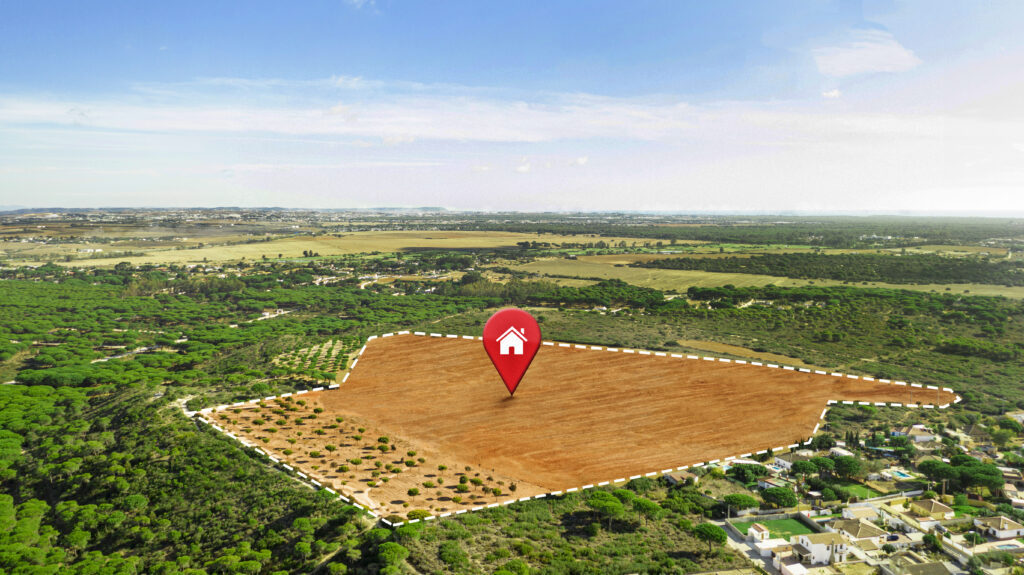Sushravas LLC

How it all started
Sushravas began with real estate investments that our founder was interested in, primarily focusing on single-family homes. As his experience grew over the last two decades, dabbling with various commercial investments and finding like-minded investors, we have now moved towards investments in Raw Land
We help customers identify niche opportunities in real estate investing.

Investing in real estate offers a compelling path to financial growth and long-term security. Imagine a tangible asset that can generate consistent passive income, appreciate in value over time, and provide significant tax advantages. From residential rentals to commercial properties, the diverse opportunities within real estate allow for tailored strategies that align with your financial goals, offering a robust hedge against inflation and a powerful vehicle for wealth accumulation.

Benefits of real estate investments
- Residential Properties (Single-Family Homes, Condos, Duplexes): These involve purchasing homes to rent out to individuals or families. They offer stable cash flow from rent and potential appreciation in value, often with accessible financing and tax benefits.
- Multi-Family Properties (Apartment Complexes): Investing in buildings with multiple residential units, from duplexes to large apartment complexes. This provides diversified income streams from multiple tenants and economies of scale in management.
- Commercial Properties (Office Buildings, Retail Spaces): These include buildings leased to businesses for their operations, such as offices or storefronts. They typically offer longer lease terms and potentially higher rental yields compared to residential properties.
- Industrial Properties (Warehouses, Distribution Centers): Focuses on facilities for manufacturing, storage, and logistics. This sector benefits from e-commerce growth and offers stable, long-term leases, often with tenants covering many operating expenses.
- Retail Properties (Shopping Centers, Standalone Stores): Properties leased to businesses that sell goods or services directly to consumers. They can generate significant income from strong tenant demand in high-traffic areas, with some offering long-term leases with built-in rent increases.
- Real Estate Investment Trusts (REITs): Companies that own or finance income-producing real estate and are traded like stocks on exchanges. REITs provide portfolio diversification, liquidity, and regular dividend income without direct property management responsibilities.
- Raw Land: Undeveloped land purchased for future development or appreciation. It requires minimal management and can offer significant long-term appreciation potential as populations grow and development expands.
- Real Estate Crowdfunding: A method of pooling funds from multiple investors to finance real estate projects. This allows for lower entry barriers, diversification across various projects, and often passive income without direct involvement in property management.
OuR speciality: Raw Land investments

Potential for Significant Appreciation: Land is a finite resource, and as populations grow and development expands, the demand for buildable land increases. This scarcity often leads to substantial long-term appreciation in value, especially in areas “in the path of growth” or those targeted for future development. Unlike developed properties which can depreciate due to wear and tear, land generally holds its value and can appreciate faster.
Minimal Management and Low Maintenance: This is one of the most appealing aspects. Raw land requires very little day-to-day management compared to properties with structures. There are no tenants to deal with, no leaky roofs, broken appliances, or complex maintenance issues. Your primary responsibilities typically involve paying property taxes and perhaps occasional weed cutting or boundary monitoring. This makes it ideal for passive investors.
Flexibility and Control: Raw land is a blank canvas. You have the ultimate freedom to decide how the property will be used in the future, subject to zoning laws. Whether you envision building a custom home, developing commercial properties, creating agricultural land, or simply holding it for long-term appreciation, the possibilities are vast. This level of customization allows investors to tailor their strategy to their specific goals.
Lower Initial Cost (Often): Compared to developed properties, raw land typically has a lower upfront purchase price. This can make it more accessible for investors looking to enter the real estate market or those seeking a more affordable option for future development.
Inflation Hedge: Real estate, including raw land, is often considered a strong hedge against inflation. As the cost of living and materials rises, so too does the value of land. Its ability to retain or increase value during inflationary periods makes it a smart store of wealth for long-term investors, helping to preserve purchasing power.
Tangible Asset and Security: Unlike stocks or bonds, raw land is a physical asset you can see, touch, and even walk on. This tangibility provides a sense of security and stability. It cannot vanish or become obsolete, offering a foundational component of wealth that has historically stood the test of time.
Diversification: Adding raw land to an investment portfolio can provide valuable diversification. Real estate often moves independently of traditional financial markets (stocks and bonds), which can help reduce overall portfolio risk and potentially enhance returns over time.
Please contact us if you are interesting in joining our investment group. Happy to guide you through various options and help you attain your financial independence